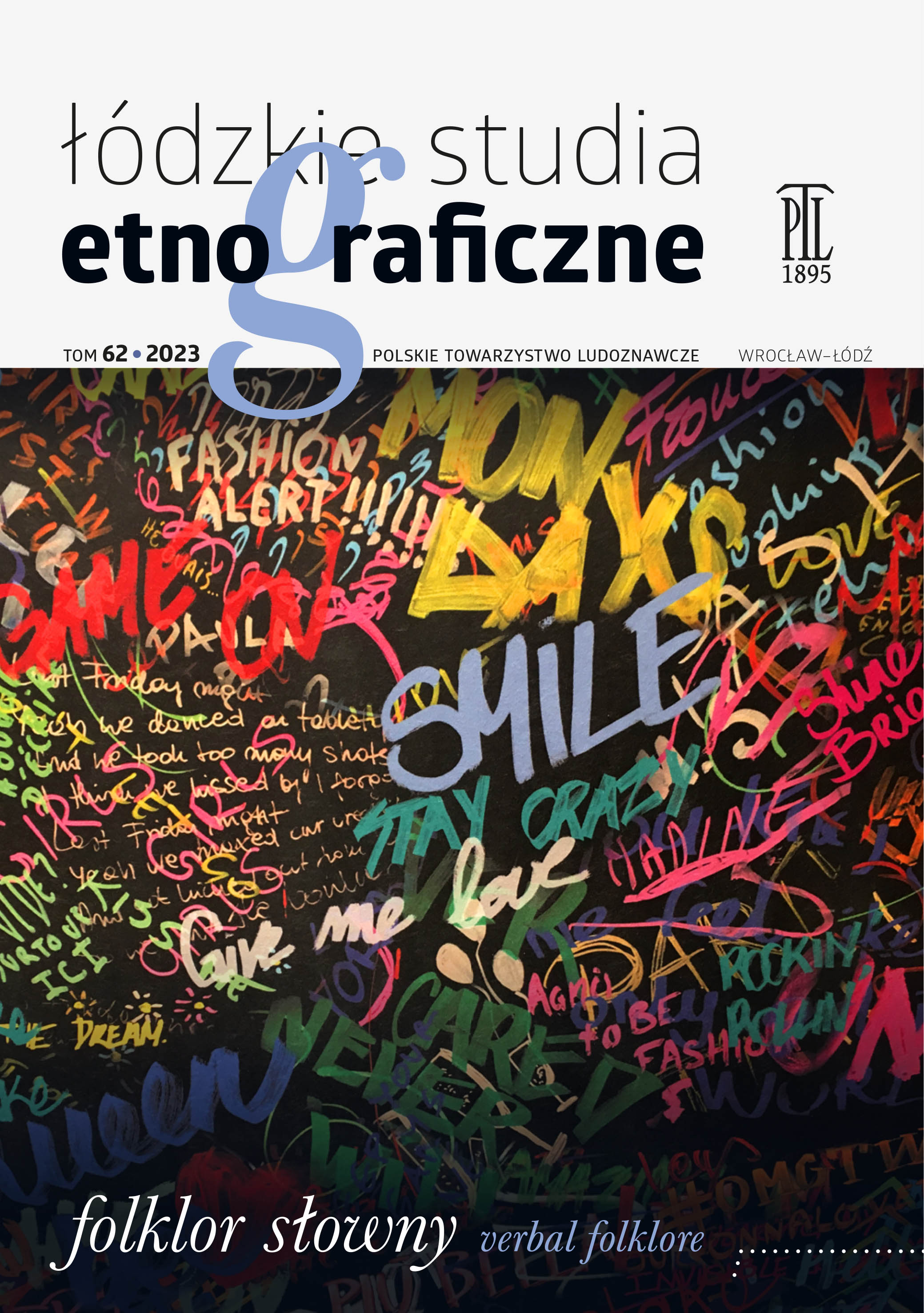Farmers and traders: two ethe of work, two conventions of storytelling in memory-based stories told by the Vilamovians about the Second World War and the post-war persecutions
Farmers and traders: two ethe of work, two conventions of storytelling in memory-based stories told by the Vilamovians about the Second World War and the post-war persecutions
Author(s): Tymoteusz KrólSubject(s): Customs / Folklore, Local History / Microhistory, Culture and social structure
Published by: Polskie Towarzystwo Ludoznawcze
Keywords: memory-based story; Vilamovians; Wilamowice; storytelling convention; ethos;
Summary/Abstract: The Vilamovians are an ethnic group living in the town of Wilamowice in the borderland of Silesia and Lesser Poland. Literature has presented them as a homogeneous group whose members were famous for being traders, yet in reality the Wilamowice community was divided into sev- eral social strata. Especially the two dominant ones – large farm owners and traders – repre- sented different ethe, which influenced two storytelling conventions, one focused on trade, the other – on agriculture. These conventions are apparent in memory-based stories told by the Vilamovians. In the former, it is work that constitutes the central motif and is valued in itself; in the latter, work is only the means to an end, which is to acquire more wealth. Today, as a result of the fabulisation and folklorisation of the content disseminated in the media, the trade-ori- ented convention has become dominant. Meanwhile, the work-oriented convention was more popular among the older generation, and is still clearly discernible today in memory-based sto- ries about the Volksliste and the post-war persecution of the inhabitants of Wilamowice. These stories, however, do not tell us how the Vilamovians really behaved, but about what values the narrators professed at the time of conveying the given message. Their form was influenced by the narrative tradition of the given community – be it ethnic or professional.
Journal: Łódzkie Studia Etnograficzne
- Issue Year: 62/2023
- Issue No: 1
- Page Range: 123-143
- Page Count: 21
- Language: English

